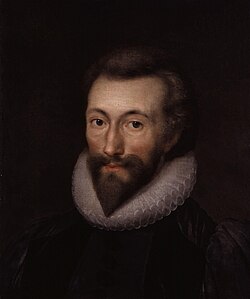John Donne (1572–1631) was a seminal figure in English literature and one of the leading metaphysical poets of the early 17th century. Born into a Catholic family during a time of religious conflict in England, Donne later converted to Anglicanism and became a respected cleric in the Church of England. His life and work reflect the intense spiritual, emotional, and intellectual struggles of his era.
Donne’s poetry is characterized by its metaphysical style—marked by elaborate conceits, paradoxes, and a blend of passionate intensity with philosophical depth. His early works, such as The Flea and The Good Morrow, explore love with wit and sensuality, often challenging traditional notions of romance. In contrast, his later religious poems and sermons, including Holy Sonnets and Devotions upon Emergent Occasions, reveal a more somber and introspective tone, grappling with mortality, sin, and divine judgment.
One of Donne’s most famous lines, “No man is an island,” underscores his view of human interconnectedness, a concept that resonates strongly in a globalized world. His poetry often fused the physical and the spiritual, illustrating how personal experiences could reflect broader human truths.
Donne’s legacy lies in his ability to unite emotion with intellect, creating poetry that continues to engage readers across time. His work, deeply rooted in personal experience yet universal in theme, reflects the tensions of a world transitioning through religious reform, scientific discovery, and the beginnings of global exploration—elements that prefigure the complexities of the modern world.


